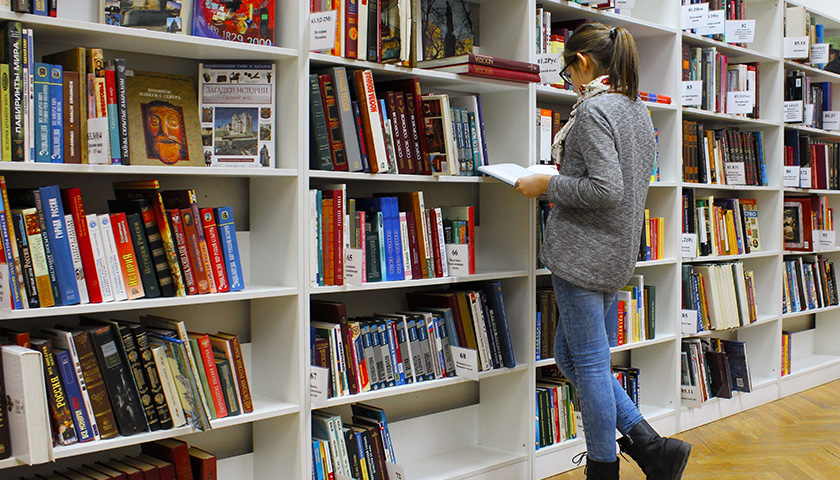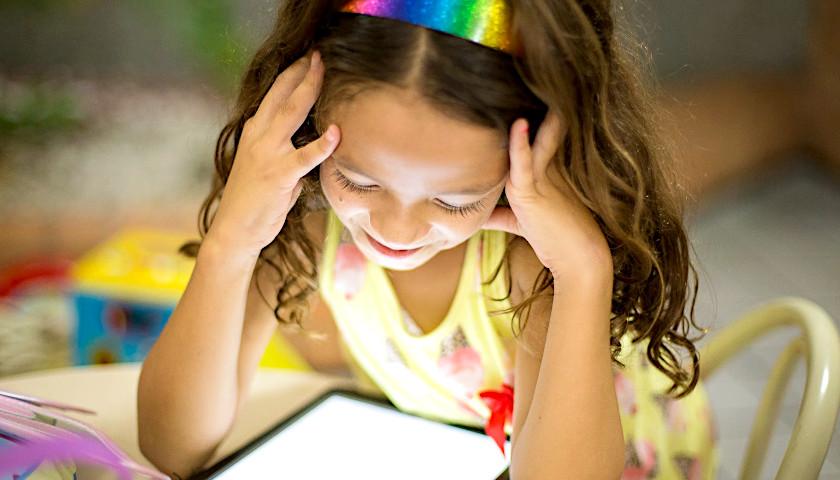by C.C. Jones
In his work The Western Canon, Harold Bloom wrote that a “reader does not read for easy pleasure or to expiate social guilt, but to enlarge a solitary existence.”
The apparent message in Bloom’s flourish is that a reader ought to be after something more difficult to attain than mere pleasure. Passive consumption of entertainment will simply not do. Instead, readers are to be fully engaged with the work in front of them, especially when the process is difficult. It’s through this difficulty that a reader inevitably enlarges what Bloom refers to as a “solitary existence,” or, put another way, an existential engagement with the human condition.
However, it appears that readers, especially young Americans, aren’t invested in excavating the existential questions often presented in books. They don’t seem all that committed to investigating the philosophical implications of Nietzsche’s eternal return or the way paranoia often preys upon the mind of someone deeply entrenched in the world of John Barth’s Lost in the Funhouse. As a former university and high-school teacher, I have often heard students proclaim that books are too hard and too boring to be worth their time.
This diagnosis has become even more evident with the advent of uber-addictive social media platforms. Complex novels, such as Lucy Ellmann’s Ducks, Newburyport, Gertrude Stein’s The Making of Americans, and David Foster Wallace’s Infinite Jest, cannot effectively compete with dopamine-riddled dance and mukbang videos. Short, well-produced content on TikTok and Instagram and the endorphin rush they provide are comparable to illicit drugs. Difficult texts require more of the reader than passive attention, and most young people simply refuse the challenge.
Even for those who wish to read difficult material, it can feel like searching for a diamond in the rough. The so-called serious fiction of today features didactic tracts promoting the latest in progressive politics. Often, the inherent—albeit contradictory—message in these tracts features a heavy criticism and dismissal of white men and, ultimately, the Western world. Though this may be an attractive literary neighborhood for some, it doesn’t scratch the same intellectual and spiritual itch that, say, Albert Camus’ The Stranger does.
Instead of inviting the reader to actively and openly engage with material, these didactic tracts overtly explain how the reader should see and think about the world. It’s not rare for these tracts to bludgeon the reader with guilt and undeserved sentimentalism. One good example of this type of writing is White Fragility by Robin DiAngelo, the thesis of which suggests that implicit bias is something white people will forever have to fight against. DiAngelo says that the necessary work to rid oneself of implicit bias “will be lifelong: really thinking deeply about what it means to be white, how your race shapes your life.”
These books are generally antithetical to critical thought, and many people have been able to snuff out the modus operandi of such a work. They’re not helpful; they’re not engaging; and they don’t sharpen one’s “solitary existence.” Bloom condemned such works when he said, “We are destroying all intellectual and aesthetic standards in the humanities and social sciences.”
It’s hard to argue with Bloom’s observation. For intelligent young readers, it can feel like being grinded between the millstones of virtual hedonism and reductive sophistry. It can seem like an impossible task to find books worth one’s time. But despite what it may seem like, thought-provoking and aesthetically beautiful books are still available to anyone who’s willing to do a little digging.
The books that possess the most aesthetic power and interpretive potential are those that have stood the test of time. This is because these works are those that acknowledge a universal plight or disposition about the human condition. The best books are more than a watered-down plotline or call to political action. They are a form of communication between the reader and writer. The best books are reminders that we’re not the only one to have felt the way we do—that we are not alone in the world—and that the questions we have about the world have been asked many times before.
It’s through reading difficult books that we come away with something far more meaningful and long-lasting than a viral video on social media, namely, the expansion of our solitary existence.
– – –
C.C. Jones is a contributor to Intellectual Takeout.
Photo “Person in Library Looking at Books” by Pixabay.





